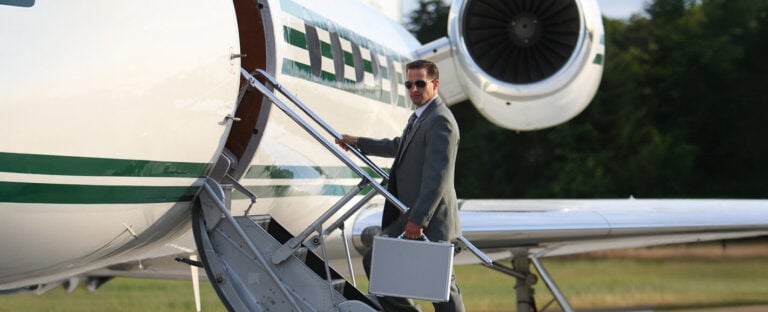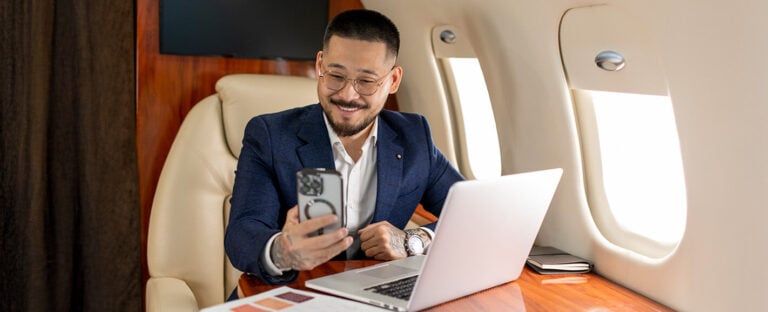Latitude 33 Aviation is part of an industry-wide commitment to sustainable private aviation. The mission is to achieve net-zero carbon emissions by the year 2050 by implementing new technology and practices. Private charter companies and other aviation organizations can improve sustainability by optimizing energy sources, energy consumption, aircraft operation, and aircraft design.
Flight Deck Technology
One way private air travel agencies are increasing sustainability is by improving the technology on the aircraft. Private air charter companies are implementing flight deck systems that optimize the pilot’s ability to engage various processes and visualize their flight path.
New flight deck technology reduces the time between power-up and takeoff while helping pilots land on schedule and minimize times enroute. The ultimate result is increased fuel efficiency due to lower waste from excess fuel burn during elongated processes.
Route Optimization
Private charter companies can also improve sustainability by flying fuel-efficient routes. Innovative flight deck technology allows pilots to plan and execute paths that require the least fuel to complete. Additionally, charter operators can optimize flight schedules to ensure each departure can proceed as planned with minimal idling, repositioning, and subsequent fuel waste.
Aircraft Design
The aircraft’s design contributes to sustainability as well. At Latitude 33, we recently implemented a Bombardier customer aircraft that includes various sustainability features and design choices. The Challenger 350 has innovative cantlet wings that minimize drag alongside powerful engines that deliver immense thrust. This jet also utilizes sustainable aviation fuel (SAF) — a new type of fuel that offers numerous environmental advantages.
Aircraft Production and Management
Private charter companies are also improving sustainability by partnering with manufacturers that are designing aircraft with features such as better fuel efficiency and implementing responsible manufacturing practices. This includes building with sustainable materials and using environmentally friendly material procurement methods and manufacturing processes.
After obtaining the aircraft, charter companies can emphasize sustainability in how they manage each jet. Beyond efficient flight paths, private charter operators can perform maintenance to retain each aircraft’s efficiency throughout its lifespan. Sustainability is also a consideration at the end of an aircraft’s lifecycle. Companies are decommissioning aircraft before their efficiency drops too low, then recycling as much of the aircraft as possible.
Sustainable Aviation Fuel
The most significant advancement that drives sustainable private air travel is sustainable aviation fuel (SAF). SAF is a new type of fuel procured from renewable waste and agricultural residue. Common SAF feedstocks include algae, corn grain, oil seeds, manure, and various fats and greases. Research shows that SAF can facilitate a 90% decrease in greenhouse gas production.
SAF has a similar composition to Jet-A1 fuel, meaning it can power any existing jet and blend into economical fuel mixtures as businesses move toward carbon-neutral operations. As one of the most potent and versatile efficiency tools available to private air travel businesses, SAF will shape the future of aviation sustainability.
Choose Sustainable Private Air Travel
At Latitude 33 Aviation, we’ve made significant progress toward sustainable air travel through the use of efficient planes and eco-friendly fuel. We encourage you to contact us online for more information about our pursuit of sustainability or to book a flight.





Comments are closed.